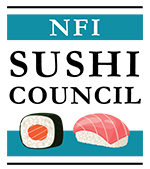Media Should Treat Latest Study on Tuna and Mercury With Skepticism
Latest Peer-Reviewed Science on Fish and Nutrition Ignored
MEDIA ADVISORY
April 21, 2010, Washington, D.C. The National Fisheries Institute (NFI) is encouraging reporters and editors to contact the Institute directly before completing any reporting about a study on fish and mercury published in the most recent edition of Environmental Research. The study, “Ranking the contributions of commercial fish and shellfish varieties to mercury exposure in the United States,” ignores peer-reviewed nutrition science that shows eating fish provides an overall boost to health.
Implying that Americans are at risk of mercury poisoning from eating tuna is ridiculous, considering that the average consumer eats far less fish than recommended. While the consensus of health and nutrition authorities agree that Americans should be eating 39 pounds of fish per year, consumption data shows that the average Americans only eats 16 pounds. Reducing this any further would mean forgoing the proven beneficial effects of omega-3 fatty acids, vitamin D and antioxidants like selenium.
Studies that single out the presence of trace amounts of mercury in seafood can cause real harm to public health. The ten most commonly eaten fish in the U.S., including tuna, are considered to be low in mercury. A 2009 study concluded low omega-3/seafood intake is the second-largest dietary contributor to preventable deaths in the U.S. In other words, if Americans increased the amount of seafood they ate per year to recommended levels, it could prevent 84,000 deaths a year.
According to the the U.S. Food and Drug Administration (FDA), the only subpopulations that need to be concerned with mercury in seafood are women who are or may become pregnant, nursing mothers, and young children. The FDA says those groups should eat a variety of seafood twice a week with as much as 6 ounces of white/albacore tuna while avoiding four species of fish: shark, king mackerel, swordfish, tilefish. All other consumers should continue to follow the advice of reputable health organizations to eat a variety of fish twice a week.
For more than 60 years, the National Fisheries Institute (NFI) and its members have provided American families with the variety of sustainable seafood essential to a healthy diet. For more information visit: www.AboutSeafood.com.Contact Information
Gavin Gibbons703-752-8891


